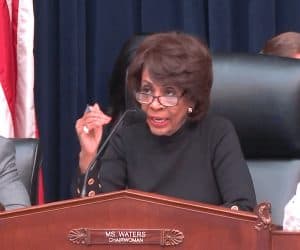 This past week, the US Federal Reserve issued a discussion document on the possibility of a central bank digital currency or CBDC. Like many central banks around the world, the Fed is considering if a digital dollar will be a positive step or a negative one when it comes to managing monetary policy and transfers of value. The Fed’s consultation outlines some of the pros and cons and poses a number of questions for interested parties to consider. Responses should be forwarded by May 2022.
This past week, the US Federal Reserve issued a discussion document on the possibility of a central bank digital currency or CBDC. Like many central banks around the world, the Fed is considering if a digital dollar will be a positive step or a negative one when it comes to managing monetary policy and transfers of value. The Fed’s consultation outlines some of the pros and cons and poses a number of questions for interested parties to consider. Responses should be forwarded by May 2022.
Yesterday, Congresswoman Maxine Waters, Chair of the powerful House Committee on Financial Services, issued a statement in response to the Fed’s possible pursuit of a CBDC. Chair Waters stated:
“As a growing number of Americans and businesses engage with or invest in digital assets such as stablecoins and other cryptocurrencies, my Committee is reviewing how they are increasingly affecting many aspects of our lives and our financial system. On central bank digital currencies, yesterday’s report from the Federal Reserve is the first step in outlining the benefits and challenges with the United States’ potential issuance of its own CBDC. Unlike private digital assets, a CBDC issued by the Federal Reserve would be backed by the full faith and credit of the U.S. government, like the dollar bills in our wallets, and hold the promise of deepening financial inclusion for underserved communities as more economic activity moves online.”
Waters said that China’s push to utilize a digital yuan or e-RMB could challenge the dollar’s status as the world’s reserve currency:
“The Federal Reserve has an important role to play in maintaining the U.S. dollar as the world’s reserve currency, and policymakers and regulators must make sure that neither foreign governments’ digital currencies nor digital assets issued by private entities weaken the U.S. dollar’s stature or harm our economy,” Waters stated.
She added that she expects the Federal Reserve will explore CBDCs while ensuring that “low-income communities and communities of color contribute to the development of a CBDC. I look forward to continuing to work with the Federal Reserve and all other relevant regulators on this very important issue.”
“We must continue to explore a CBDC and be laser-focused on financial inclusion,” said Congresswoman Waters.
The issuance of a CBDC by the Fed is no forgone conclusion. Some industry participants believe privately issued stablecoins, property regulated, will provide a better path for innovation. Some believe a hybrid approach is needed. Regardless, any decision will most likely need the approval of Congress and dollar-based CBDC is is most likely several years of in the future – if ever.

